Kensington news: Breakfast with Santa, ‘Deck the Walls’ art show and more
Hey there, neighbors. Coming up this week, Santa is picture-ready for free photos at Scanlon Rec Center, local artists are
The police oversight agency, known as CPOC, was created by a city ordinance in 2021 to improve transparency and accountability in policing.

At the last public Citizens Police Oversight Commission meeting, the agency’s Investigations Unit spent 22 minutes of their 24-minute update discussing incidents of Philadelphia Police Department officers shooting dogs.
“The review is not necessarily to go after any specific officers,” said Investigations Unit director Nick Kato at the meeting. “But it is to look critically at the policy and see how we might have better outcomes for the dogs, the dogs’ owners, and police officers themselves.”
The police oversight agency, known as CPOC, was created by a city ordinance in 2021 to improve transparency and accountability in policing. The agency has grown its staff to 22 people and has received more than $3 million from the city budget since its creation.
But since then, the agency has conducted zero independent investigations of complaints against police, according to their representatives, despite having the legislative authority to do so. The commission’s staff say this is due in part to constraints imposed by Philly’s police union, the Fraternal Order of Police Lodge 5.
“We are actively working towards fulfilling the legislative mandate to carry out independent officer misconduct investigations,” wrote CPOC spokesperson Jodie Eichel in an email, noting that staff are “preparing for the upcoming round of collective bargaining with the police union.”
Eichel noted that the agency also needs more time to “establish robust processes, train our investigators, and build the relationships needed to be effective.”
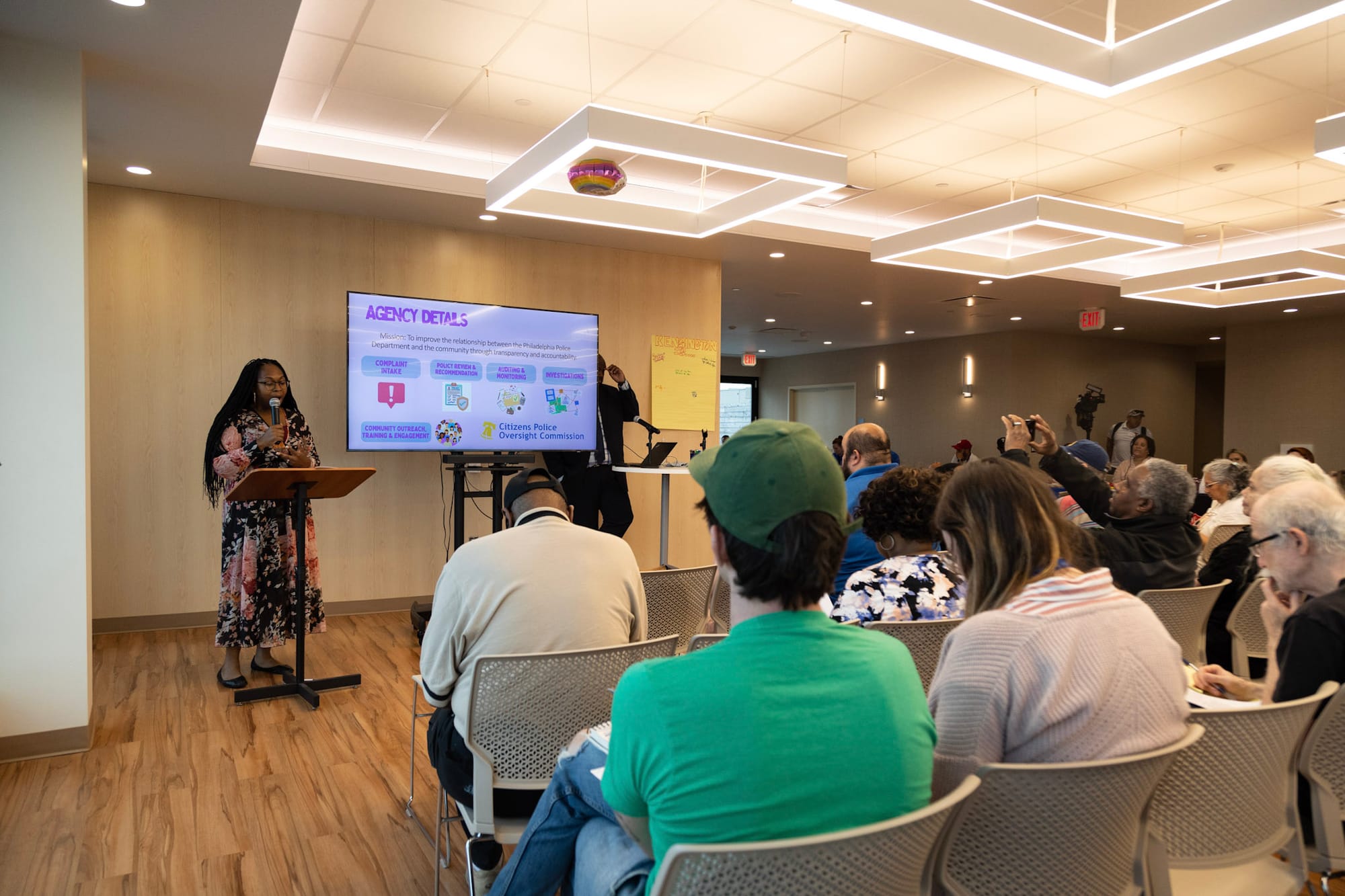
FOP union representatives declined to comment. Contract negotiations happen at the end of this year, which means the soonest independent investigations could begin would be 2025.
“While that happens, this issue, I think, is certainly an important one to continue to address,” Kato said of the recent focus on dogs.
So far this year, city police have shot 10 dogs – eight of them fatally, according to Kato’s data. Kato argues that looking at an officer’s behavior with dogs can be a risk indicator for police aggression.
Former CPOC commissioner Rosauro Torres Thomas, who was suspended from the agency in July, said the focus on dog shootings is just a way for the commission to hide the fact that they aren’t investigating citizen complaints.
“Everyone keeps using this thing – ‘Don’t look over here, look over there, look at police shooting dogs’,” she said. “But why are they not investigating? Why aren’t they?”
Torres Thomas feels this line of questioning is part of why she was suspended. Eichel said via email that the commission suspended Rosaura for “sharing confidential information,” though that is still pending investigation.
“The legislation says ‘Yes, we are allowed to do investigations.’ But I never saw any investigation reports,” she said. “What are we doing to help the people who file complaints about abuse by police officers? … absolutely nothing.”
The lack of independent police oversight should concern residents – especially those in Kensington – given the large increase in police officers in the neighborhood this summer, said Hiram Rivera, a former resident and organizer who now runs a national police accountability nonprofit.
“This will of course include all the different ways of getting around accountability, abusing people, taking advantage of their power,” Rivera said. “And no one’s going to care, because those are people experiencing addiction, those are people who are houseless.”
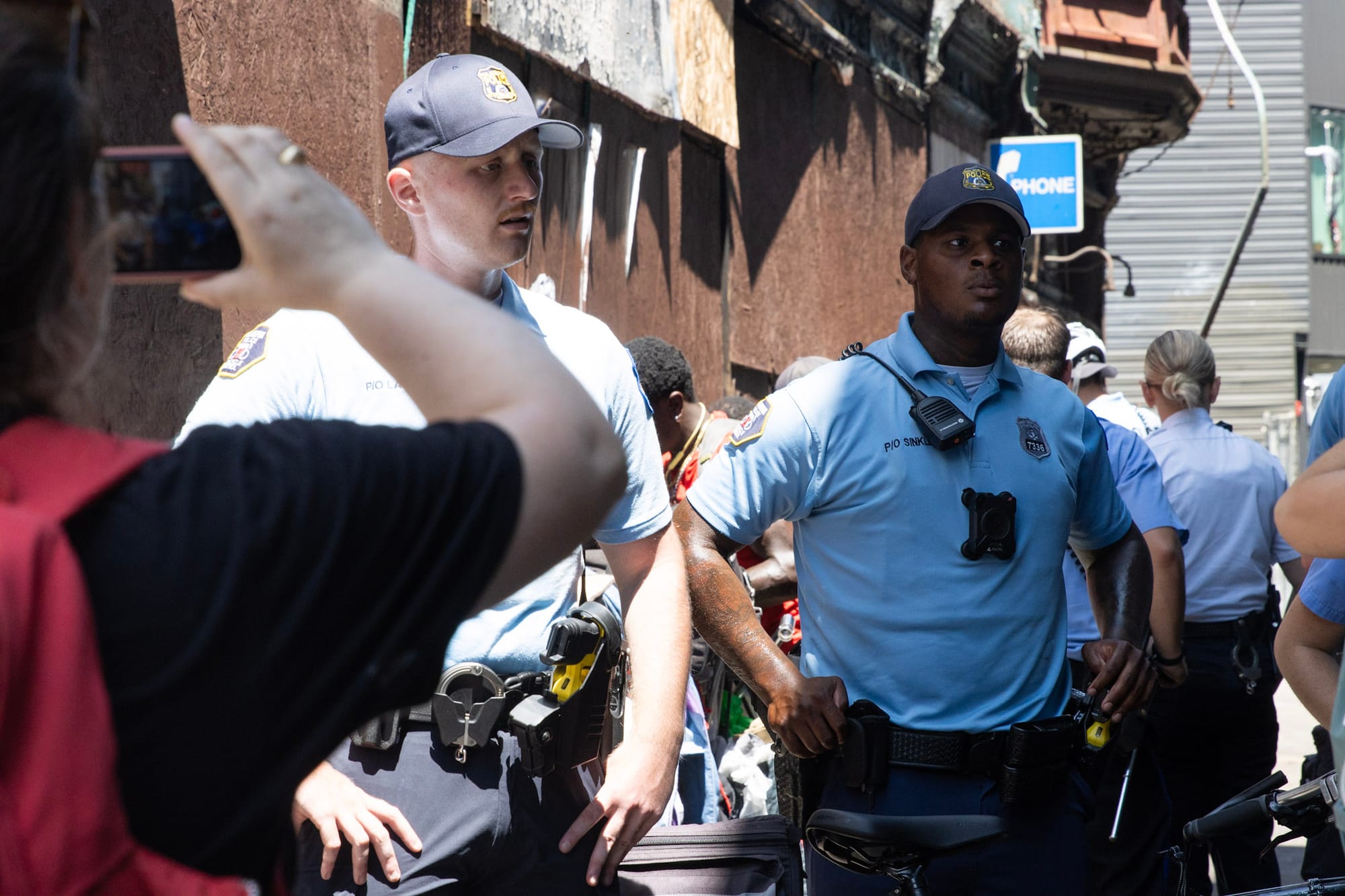
The ACLU of PA put out a policy paper about concerns around police misconduct in June, in hopes of sparking a dialogue with Mayor Cherelle Parker’s administration. The civil rights group is tracking arrest data in Kensington, and their attorneys said they are poised to alert the courts if the evolving policing strategy leads to unconstitutional stops and searches.
Since June 18 – the day 75 rookie cops began patrolling Kensington –, there has been a 60% increase in arrests for drug possession and a 67% increase for uncategorized offenses in the 24th District compared to the same time frame last year, according to data from the Philadelphia District Attorney’s Office.
“When you put more police in folks’ everyday lives, that does increase the chances of police violence occurring,” said Devontae Torriente, author of a recent University of Pennsylvania Law Review analysis on CPOC.“It's a real concern that's ongoing in peoples’ everyday lives and interactions with police officers,”
He said it’s important that people understand what CPOC is and is not doing on civilian complaints against police.
“And make sure that their elected representatives and city leaders are aware that they want to use the process, and that the process isn't meeting their needs as currently situated,” Torriente said.
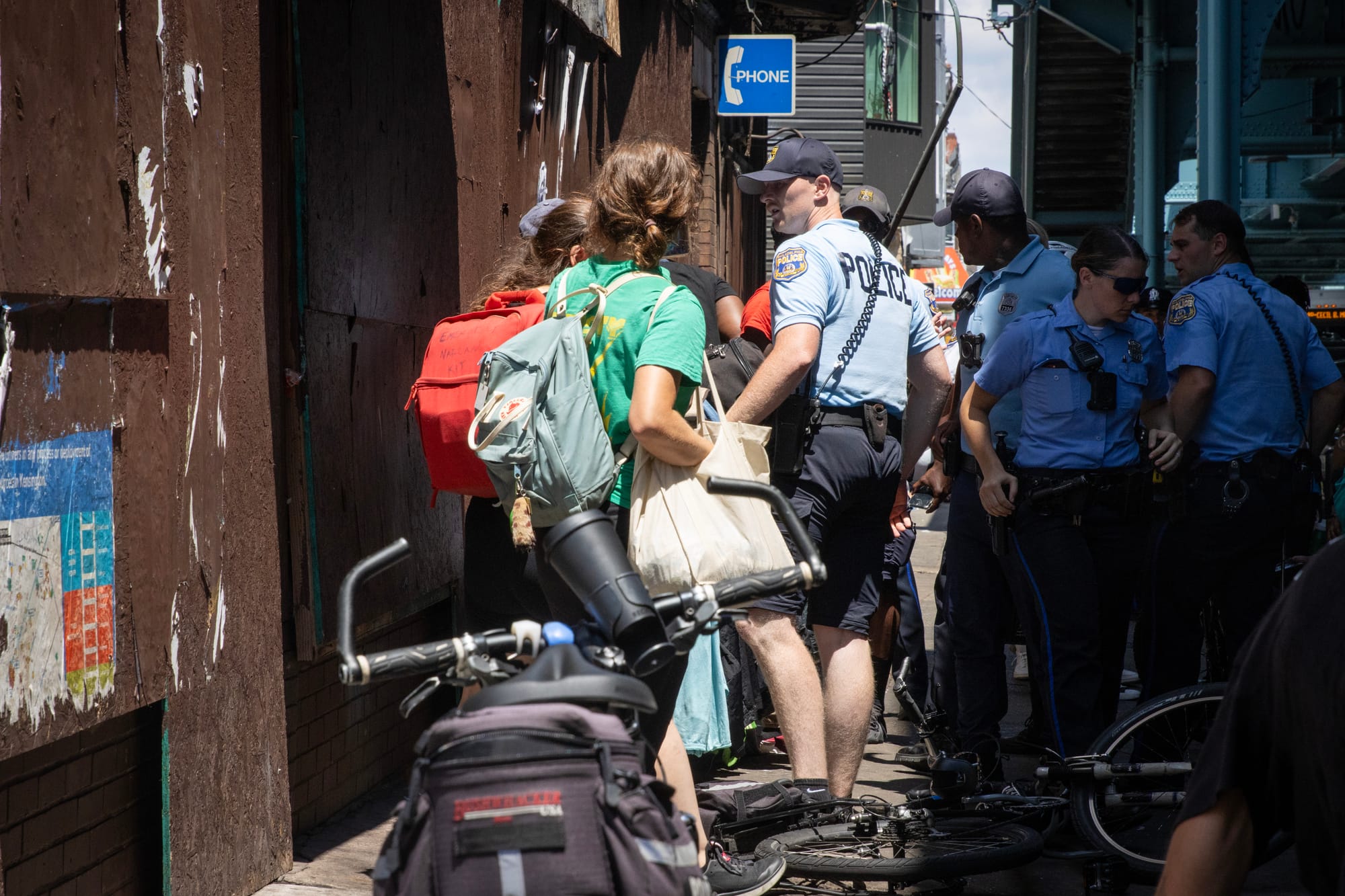
Kensington Voice reporters have eye-witnessed multiple occasions in which large groups of police officers encircle an individual to make an arrest. There are sometimes verbal altercations between community members and officers, and officers sometimes use force to handcuff the person in question.
Putting inexperienced officers in a high-stress environment could be a ‘deadly concoction,” said Thaddeus Johnson, an associate professor of criminal justice and criminology at Georgia State University. Johnson is a former Memphis Police Department deputy.
“Research shows that despite all the reforms, one of the best barometers on use of force is more experience,” he said. “We also know that groups of officers are more aggressive.”
He points to “contagious fire,” a phenomenon in which officers fire their weapons in response to their peers doing so. A new study in the Journal of Criminal Justice found that officers who were exposed to simulated gunfire from their peers were 11 times more likely to fire their weapon than those who were not.
“Use of force, it’s a dance. and usually both sides have some level of fear,” Johnson said. “If you have an officer who’s already afraid, who’s not experienced with this kind of culture … you can fall right into that trap and think things are escalating.”
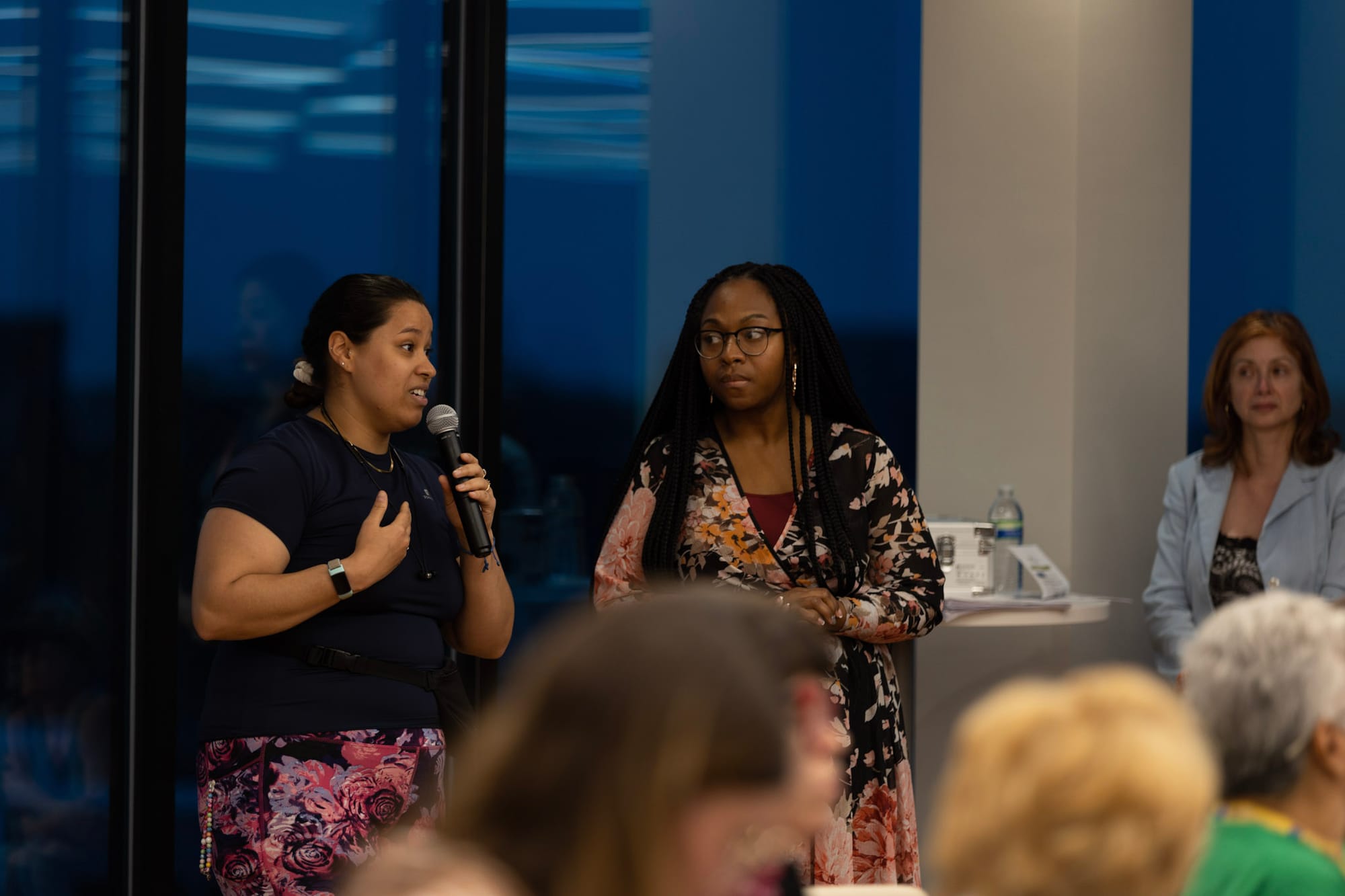
People who experience a negative police interaction can file a complaint to CPOC using this form. CPOC then transfers those complaints to PPD’s Internal Affairs Department. Individuals do not need to reside in Philadelphia to file a complaint.
So far this year, CPOC has referred 107 complaints to PPD’s Internal Affairs Department. About one-third of those complaints were for “lack of service” and one-third were for “departmental violations,” including improper stops, frisks, and arrests. Other common complaints included allegations of unprofessional conduct, verbal abuse, physical abuse and civil rights violations.
A recent audit of 250 PPD investigations, conducted by CPOC, uncovered problems such as missing allegations, discrepancies between the evidence presented and the investigation’s conclusion, failures to contact potential witnesses, and long investigative timelines.
PPD investigations of police misconduct rarely result in discipline. A 2021 review of PPD investigations, conducted by CPOC’s predecessor (the Police Advisory Commission), found that only 2% of allegations resulted in a guilty finding, and only 1% led to some form of discipline.
“The problem is those organizations don’t have any teeth,” Rivera said of police oversight commissions more broadly. “It gives the community the illusion that something is being done. But realistically, there’s no control. All that rests with the department itself.”
Still, Rivera said, people who are abused by police officers should file a complaint to create a paper trail in case something more serious occurs in the future.
“It may not have an immediate impact and it may not impact you yourself, but when one of these officers kills someone, severely injures someone, engages in something that is so grotesque that they somehow end up inside of a courtroom, this is where these complaints then come up,” he said.
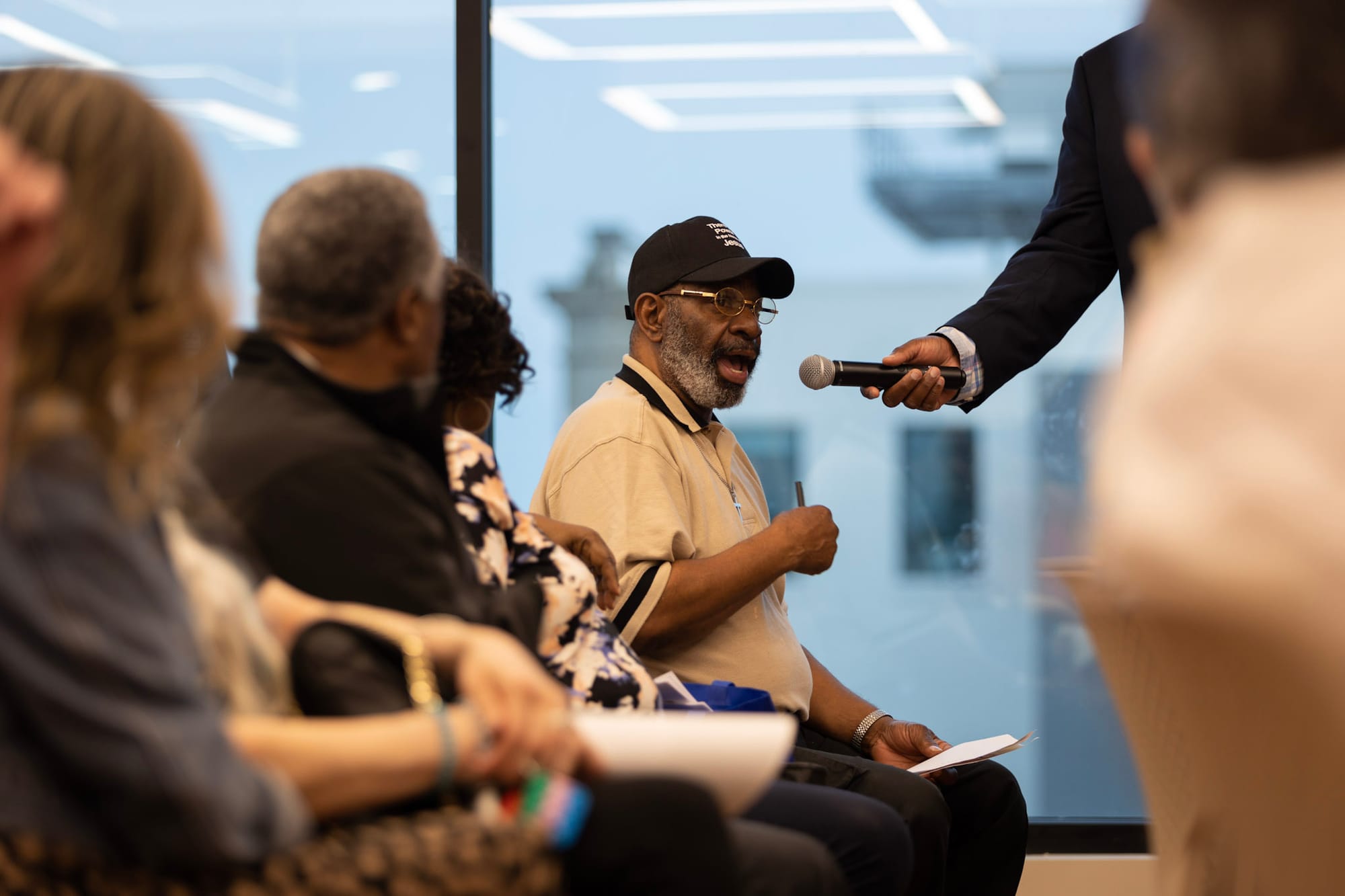
Tonya McCleary, the new executive director of CPOC, said filling with the agency instead of filing directly with PPD does provide some additional oversight. While CPOC doesn’t conduct its own investigations, it does monitor Internal Affairs investigations and has been doing so for 20 complaints filed between March of this year and now, according to Kato
“If someone walks into a police station, it's not guaranteed that we'll know about that complaint with enough time to sit in on the interviews and things of that nature,” said McCleary. “When it comes into our doors, we know the moment they file it and then we can stay on top of it a lot better.”
Councilmember Curtis Jones introduced the legislation to create CPOC in the wake of George Floyd’s murder.
It was designed to replace the Police Advisory Commission (PAC), which was first established in 1993, but PAC “did not have direct, independent authority over police misconduct matters” and did not have charging or disciplinary powers, according to Torriente. PAC also had an annual budget of just $550,000.
But even with the funding boost, the agency was plagued by staffing challenges. Three of its nine commissioners resigned in 2023, with one citing “toxic dysfunction” in her resignation letter, according to multiple media outlets. The following July, commissioner Thomas was suspended.
Former commissioner Ben Lerner was among the three who resigned.
“That board of commissioners did nothing substantive with regard to any of the power or authority the commissioners were given, except to try, by fighting with the staff and demonizing the executive director, to try to exert the power of the commissioners over the staff,” Lerner said.
CPOC is currently operating without bylaws. The commission voted to rescind the existing bylaws – created by the former iteration, PAC – at their August meeting.
“In my opinion, the current bylaws do not accurately reflect the current work of the commission,” said commissioner and interim chair Hasan Bennett at the meeting. “I want to assure everyone … we will prioritize proposing new bylaws as soon as possible.”
CPOC is currently hiring new commissioners, with applications closing on September 3.

CPOC isn’t investigating complaints because they’re worried about being sued by the FOP, according to the agency’s former executive director Anthony Erace, who said so in a March public meeting.
Torriente explained that FOP’s contract with the city says the union needs to approve matters that involve bargaining, such as officer discipline.
“So CPOC conducting investigations could be in violation of that contract,” he said.
The contract also includes a binding provision that lets officers appeal a police commissioner’s disciplinary decisions, including when the police commissioner recommends their termination.
“When arbitration does occur, it's not uncommon for the arbitrators to overturn the disciplinary decision that is handed down by the police commissioner,” Torriente said.
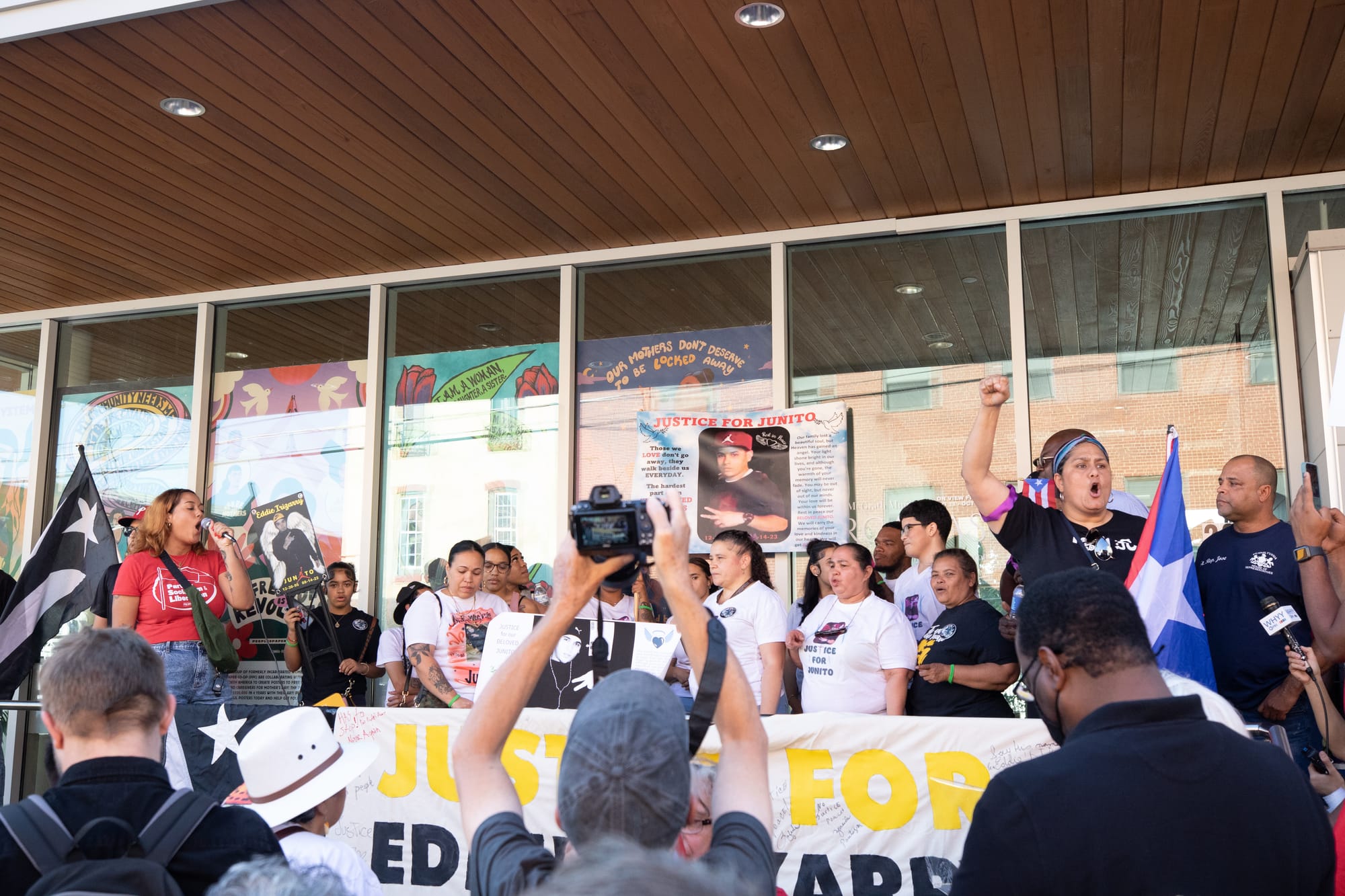
CPOC performs audits of PPD Internal Affairs investigations, such as the one released last month.
The agency collaborates with PPD to review instances where police officers use force. This watching videos and reviewing department policy and making recommendations.
Last year, CPOC called for the termination of PPD Officer Mark Dial, who fatally shot Eddie Irazarray and is now facing third degree murder charges. First-degree murder charges against Dial were dropped earlier this month.
CPOC also offers an alternative to investigations called the Community-Police Complaint Mediation program, which is supposed to “address complaints and concerns in a confidential, guided conversation.” The program is specifically for verbal abuse and lack of service complaints.
To be eligible:
The agency has not engaged in any mediations since the program began. Eichel said that is because the criteria for the mediation program is narrow, and many citizens choose to seek formal accountability instead.

Have any questions, comments, or concerns about this story? Send an email to editors@kensingtonvoice.com.
Free accountability journalism, community news, & local resources delivered weekly to your inbox.